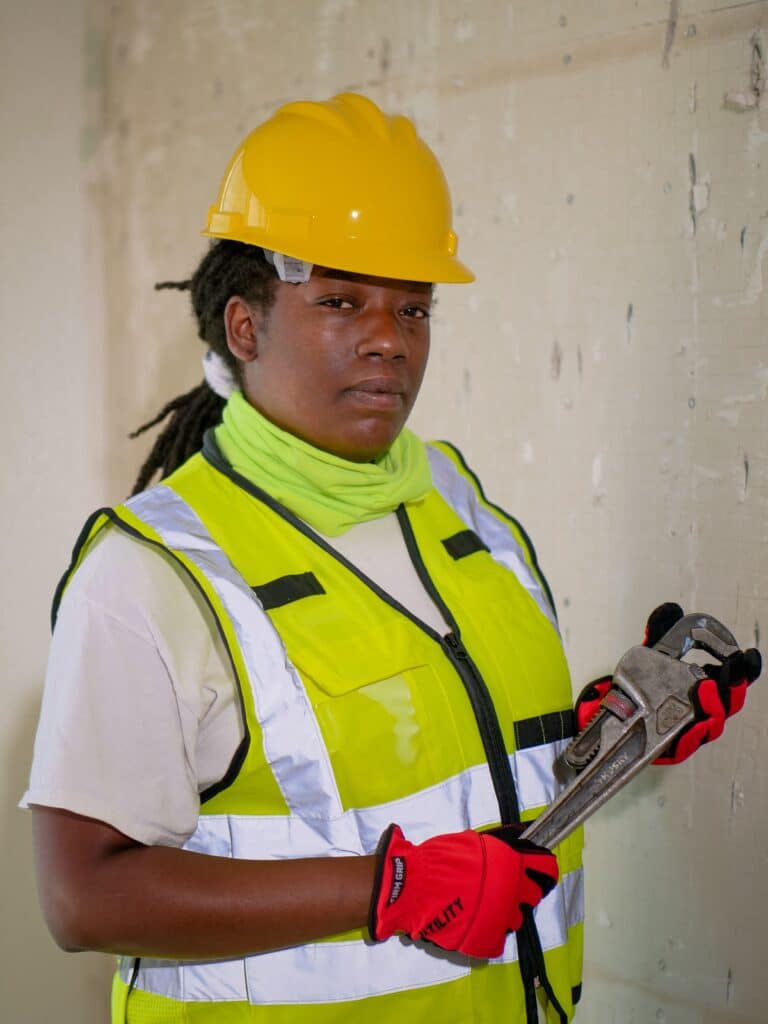Plumbers are the unsung heroes of every well-functioning home and business. Their expertise ensures that water flows freely, pipes remain unclogged, and essential systems operate seamlessly. In the grand scheme of things, they play a pivotal role in the growth and success of any company or household. Think about it – a plumbing emergency can disrupt operations, cause costly damages, and lead to customer dissatisfaction. In contrast, a skilled plumber can keep these nightmares at bay, ensuring that everything runs smoothly.
But the million-dollar question remains: How do you find the right plumber for your needs? The answer lies in assessing their hard and soft skills effectively. In this comprehensive guide, we’ll delve into the world of plumbers, exploring their roles, the essential skills they must possess, and the best strategies to evaluate their expertise. Whether you’re a homeowner in need of repairs or a business owner looking for a plumbing partner, understanding how to hire a plumber is key to maintaining the flow of success.
What is a Plumber?
A plumber is a skilled professional tasked with the vital responsibility of maintaining, installing, and repairing plumbing systems. Their role is more than just fixing leaks or unclogging drains; it’s about ensuring the uninterrupted flow of water and the proper functioning of plumbing systems in homes, businesses, and industries. Here’s how this role significantly contributes to a company’s growth:
- Ensuring Functionality: Plumbers ensure that water supply systems, sewage lines, and fixtures operate smoothly, preventing costly disruptions that can impact productivity.
- Preventing Damage: They play a crucial role in preventing water-related damage, which can lead to expensive repairs and insurance claims.
- Health and Safety: Proper plumbing ensures the health and safety of occupants by preventing water contamination and addressing potential hazards.
- Energy Efficiency: Plumbers help optimize water heating and distribution systems, contributing to reduced energy consumption and lower utility bills.
- Code Compliance: Staying compliant with plumbing codes and regulations is essential for avoiding fines and legal issues, protecting a company’s reputation.
In summary, a plumber’s role goes beyond fixing leaks; it’s about safeguarding the company’s assets, maintaining operational efficiency, and promoting a safe and healthy environment.
Hard skills to assess in Plumbers
When assessing candidates for a plumber’s position, it’s essential to focus on their hard skills—the technical competencies that directly relate to the job’s demands. Here are key hard skills to look for and how to assess them:
- Technical Proficiency: Evaluate a candidate’s ability to understand complex plumbing systems, read blueprints, and interpret technical documents. Assessment: Ask them to describe their experience with different types of plumbing systems and request examples of projects they’ve worked on.
- Pipe Installation and Repair: Plumbers should excel in cutting, bending, and joining pipes, as well as troubleshooting and fixing leaks. Assessment: Present a simulated plumbing problem and ask how they would approach it, including tools and techniques they’d use.
- Fixture Installation: Ensure candidates can install and repair various plumbing fixtures, such as sinks, toilets, and faucets. Assessment: Inquire about their familiarity with different fixture types and ask them to explain the installation process.
- Pipefitting: Assess their ability to measure, cut, and thread pipes accurately for a precise fit. Assessment: Provide a sample pipe and fittings, and ask them to demonstrate how they would assemble them.
- Welding and Soldering: Determine if candidates have welding and soldering skills for joining pipes securely. Assessment: Request information about their welding certifications and ask about their soldering techniques.
- Troubleshooting: Plumbers must diagnose and resolve complex plumbing issues efficiently. Assessment: Present a hypothetical plumbing problem and ask them to outline the steps they would take to identify and fix it.
- Safety Compliance: Ensure candidates are well-versed in safety protocols and can work without endangering themselves or others. Assessment: Inquire about their safety training and ask how they prioritize safety on the job.
By assessing these hard skills during the hiring process, you can identify candidates who possess the technical expertise necessary to excel as plumbers, contributing to the overall success of your company’s plumbing needs.
Soft skills to assess in Plumbers
While technical proficiency is crucial, the success of a plumber often hinges on their soft skills—the interpersonal and behavioral attributes that influence their effectiveness on the job. Here are essential soft skills to evaluate in plumber candidates and how to assess them:
- Communication Skills: Effective plumbers need to convey complex technical information to clients and team members clearly. Assessment: During the interview, ask them to explain a plumbing issue using layman’s terms, assessing their ability to communicate with non-experts.
- Problem-Solving Abilities: Plumbers frequently encounter unique challenges that demand creative solutions. Assessment: Present a hypothetical plumbing problem and ask them to brainstorm potential solutions on the spot.
- Reliability and Punctuality: Being dependable and punctual is crucial to meet client expectations and deadlines . Assessment: Check their work history for instances of reliability and ask for references to vouch for their punctuality.
- Adaptability: Plumbing jobs can vary greatly, and plumbers must adapt to different environments and situations. Assessment: Inquire about their experience with diverse plumbing projects and how they handle unexpected challenges.
- Customer Service: Plumbers often interact with clients directly; thus, excellent customer service skills are vital. Assessment: Request examples of how they’ve handled difficult customer interactions or resolved complaints in previous roles.
- Teamwork: Plumbers often collaborate with other tradespeople and contractors on construction sites. Assessment: Ask about their experience working in team settings and how they contribute to a harmonious work environment.
- Attention to Detail: Precision is crucial in plumbing to prevent leaks, errors, and safety hazards. Assessment: Inquire about their methods for ensuring their work is error-free and how they double-check their installations.
By evaluating these soft skills alongside technical competencies, you can identify plumbers who not only excel in their craft but also contribute positively to the overall success and reputation of your plumbing projects and services.
How to test a Plumber’s skills?
Assessing a plumber’s skills effectively is essential to ensure you’re hiring the right candidate for the job. Technical tests play a pivotal role in this evaluation, providing tangible evidence of a plumber’s abilities. Here are different technical tests to consider and why they are important:
- Practical Plumbing Tests: These hands-on assessments involve tasks such as fixing leaks, assembling pipes, or installing fixtures. They allow you to gauge a candidate’s technical prowess in a real-world scenario.Importance: Practical tests provide concrete evidence of a plumber’s ability to perform key job functions and troubleshoot plumbing issues.
- Work Samples: Requesting samples of a candidate’s previous plumbing work, such as project photos or reports, allows you to assess the quality of their past projects.Importance: Work samples offer insights into the candidate’s craftsmanship and attention to detail, helping you gauge their overall competence.
- Written or Online Exams: These tests evaluate a plumber’s theoretical knowledge of plumbing systems, codes, and regulations.Importance: Written or online exams help verify a candidate’s understanding of plumbing concepts and their ability to apply theoretical knowledge.
- Scenario-Based Questions: Presenting hypothetical plumbing scenarios during the interview process can reveal a candidate’s problem-solving skills and thought process.Importance: Scenario-based questions assess a plumber’s ability to analyze complex situations and make informed decisions.
- Skills-Based Interviews: Conduct interviews that require candidates to discuss their previous plumbing projects in detail, explaining their approach and problem-solving strategies.Importance: Skills-based interviews allow candidates to showcase their experience and expertise in a conversational format.
By incorporating these technical tests into your hiring process, you can gain a comprehensive understanding of a plumber’s capabilities. This not only ensures that you select the most qualified candidate but also minimizes the risk of mis-hires, ultimately contributing to the success of your plumbing projects.

Where to find the best Plumber?
Finding the best-suited plumber for your needs often involves tapping into various platforms and resources. Here’s how to locate top-notch candidates and leverage these platforms effectively:
- Local Plumbing Companies: Start your search by contacting reputable local plumbing companies. They often have skilled professionals with a track record of quality work. Inquire about their availability or ask for recommendations if they’re unable to take on your project.
- Online Directories and Platforms: Websites and platforms dedicated to plumbing services, like Angie’s List, HomeAdvisor, or Yelp, provide directories of plumbers with customer reviews. These platforms help you identify candidates with a strong online reputation.
- Recommendations from Friends and Family: Personal referrals can be invaluable. Ask friends, family, and colleagues if they’ve had positive experiences with plumbers and if they’d recommend any particular individuals or companies.
- Professional Associations: Look for plumbers who are members of professional associations like the Plumbing-Heating-Cooling Contractors Association (PHCC). Membership often signifies commitment to industry standards and ongoing training.
- Social Media and Online Communities: Plumbing forums, social media groups, and professional networks like LinkedIn can be valuable resources for finding qualified plumbers. Post job listings or seek recommendations within these communities.
- Trade Schools and Apprenticeship Programs: Contact local trade schools and apprenticeship programs to inquire about recent graduates or apprentices who may be ready to take on independent projects.
- Job Posting Platforms: Utilize online job posting platforms like Indeed or LinkedIn to create job listings specifying your plumbing requirements. Be sure to include clear job descriptions and skill expectations.
- Local Classifieds and Newspapers: Don’t overlook traditional advertising methods. Placing ads in local newspapers or classified sections can reach a different demographic of plumbers.
Remember to thoroughly vet candidates from these sources by checking references, assessing their skills, and conducting interviews. Finding the best plumber for your project or company often requires a combination of these strategies to ensure a successful and long-lasting partnership.
Plumber’s job description template
About Us:
[Company Name] is a leading [Location]-based plumbing company dedicated to providing top-quality plumbing services to our valued clients. With a strong commitment to excellence and customer satisfaction, we have established ourselves as a trusted name in the industry.
Responsibilities:
As a Plumber at [Company Name], you will:
- Install, repair, and maintain plumbing systems in residential and commercial settings.
- Inspect plumbing systems, identify issues, and propose solutions.
- Collaborate with team members to ensure projects are completed efficiently.
- Follow plumbing codes and safety regulations.
- Communicate effectively with clients and team members.
- Keep accurate records of work performed.
Qualifications:
To excel in this role, you should have:
- Proven experience as a plumber.
- A valid plumbing license or certification (if applicable).
- Proficiency in plumbing tools and equipment.
- Knowledge of plumbing codes and regulations.
- Strong problem-solving and communication skills.
- A commitment to safety and quality workmanship.
Why Join Us?
- Competitive compensation and benefits package.
- Opportunities for professional growth and development.
- Supportive and collaborative work environment.
- Access to state-of-the-art tools and technology.
- Chance to be part of a respected industry leader.
Benefits:
- Health, dental, and vision insurance.
- Retirement savings plan.
- Paid time off and holidays.
- Continuing education and training programs.
- Employee assistance program.
- Employee discounts on services.
Application Process:
To apply for the Plumber position at [Company Name], please submit your resume and a cover letter detailing your relevant experience and qualifications. If selected, you will be invited for an interview and skills assessment.
Other Important Information:
- [Company Name] is an equal opportunity employer.
- We prioritize safety in all our operations.
- This position may require occasional overtime and weekend work.
- [Company Name] is committed to environmentally responsible plumbing practices.
Join our team of dedicated professionals at [Company Name] and be a part of a company that values excellence, integrity, and customer satisfaction. We look forward to welcoming a skilled plumber to our team!
How much does a Plumber cost?
The cost of hiring a plumber in the US can vary significantly based on the plumber’s experience and the complexity of the job. Here’s a breakdown:
- Entry-Level Plumbers (0-2 years of experience): On average, they charge between $45 to $75 per hour, making them a budget-friendly choice for basic plumbing tasks like unclogging drains.
- Experienced Plumbers (3-5 years of experience): Their hourly rates typically range from $75 to $150. They can handle more complex projects, including fixture installations and minor repairs.
- Master Plumbers (5+ years of experience): With extensive expertise, master plumbers charge $150 to $250 per hour. They are best suited for intricate jobs such as complete system installations and extensive renovations.
These rates can also vary based on location, with major cities generally having higher plumbing service costs. Keep in mind that additional fees may apply for emergency services, materials, and permits, further influencing the total cost.
Top 15 interview questions for hiring Plumbers
Interviewing candidates for a plumber’s role requires a well-rounded assessment of their hard skills, soft skills, and general attributes. Here are questions categorized accordingly:
Hard Skills:
- Describe your experience with pipe installations and repairs. Can you provide examples of projects you’ve worked on?
- How do you stay updated with the latest plumbing technologies and industry best practices?
- What certifications and licenses do you possess, and how do they qualify you for this role?
- How would you approach a complex plumbing issue where multiple solutions are possible? Can you give an example?
- Explain the steps you take to ensure plumbing systems comply with local codes and regulations.
Soft Skills:
- How do you handle communication with clients when explaining plumbing issues and repair options?
- Describe a challenging situation with a co-worker or client in your previous job and how you resolved it.
- Can you provide an example of a time when you had to adapt to a sudden change or unexpected challenge on a job?
- How do you prioritize safety on the job, and what safety protocols do you follow?
- Tell us about a project where you demonstrated exceptional attention to detail.
General Skills:
- Why did you decide to become a plumber, and what motivates you in this profession?
- How do you manage your time effectively when working on multiple plumbing projects simultaneously?
- What tools and equipment are essential for a plumber, and how proficient are you with them?
- How do you handle stress and pressure in high-demand situations or during emergencies?
- Can you provide references from previous employers or clients who can vouch for your plumbing skills and work ethic?
Importance of Asking These Questions:
Asking these questions during interviews helps evaluate a candidate’s technical abilities, interpersonal skills, and overall suitability for the plumbing role. It ensures that you select a candidate who not only possesses the necessary hard skills but also demonstrates the soft skills and attributes needed for successful plumbing work and client interactions.
Assess for Plumber skills to avoid Mis-Hires
In the world of plumbing, hiring mistakes can be costly. To mitigate the risk of mis-hires, it’s crucial to employ effective skill assessments in your hiring process. Not only do these assessments help you identify top talent quickly, but they also ensure a precise evaluation of candidates’ skills.
By incorporating skill assessments, you can:
- Reduce Time to Hire: Assessments streamline the candidate selection process, allowing you to identify the right plumber efficiently. This means quicker response times to plumbing emergencies or project deadlines.
- Assess Better: Skill assessments provide a hands-on evaluation of a candidate’s abilities, offering a more accurate picture of their competence. It goes beyond what resumes and interviews can reveal.
Ready to Assess Plumbing Skills Effectively?
Consider leveraging Testlify, the premier talent assessment tool. With Testlify, you can tailor assessments to your specific plumbing requirements, ensuring that you hire plumbers who meet your exact needs.
Schedule a demo today to discover how Testlify can revolutionize your plumbing talent acquisition process and help you avoid costly mis-hires. Your journey to hiring the best plumbers starts here.







